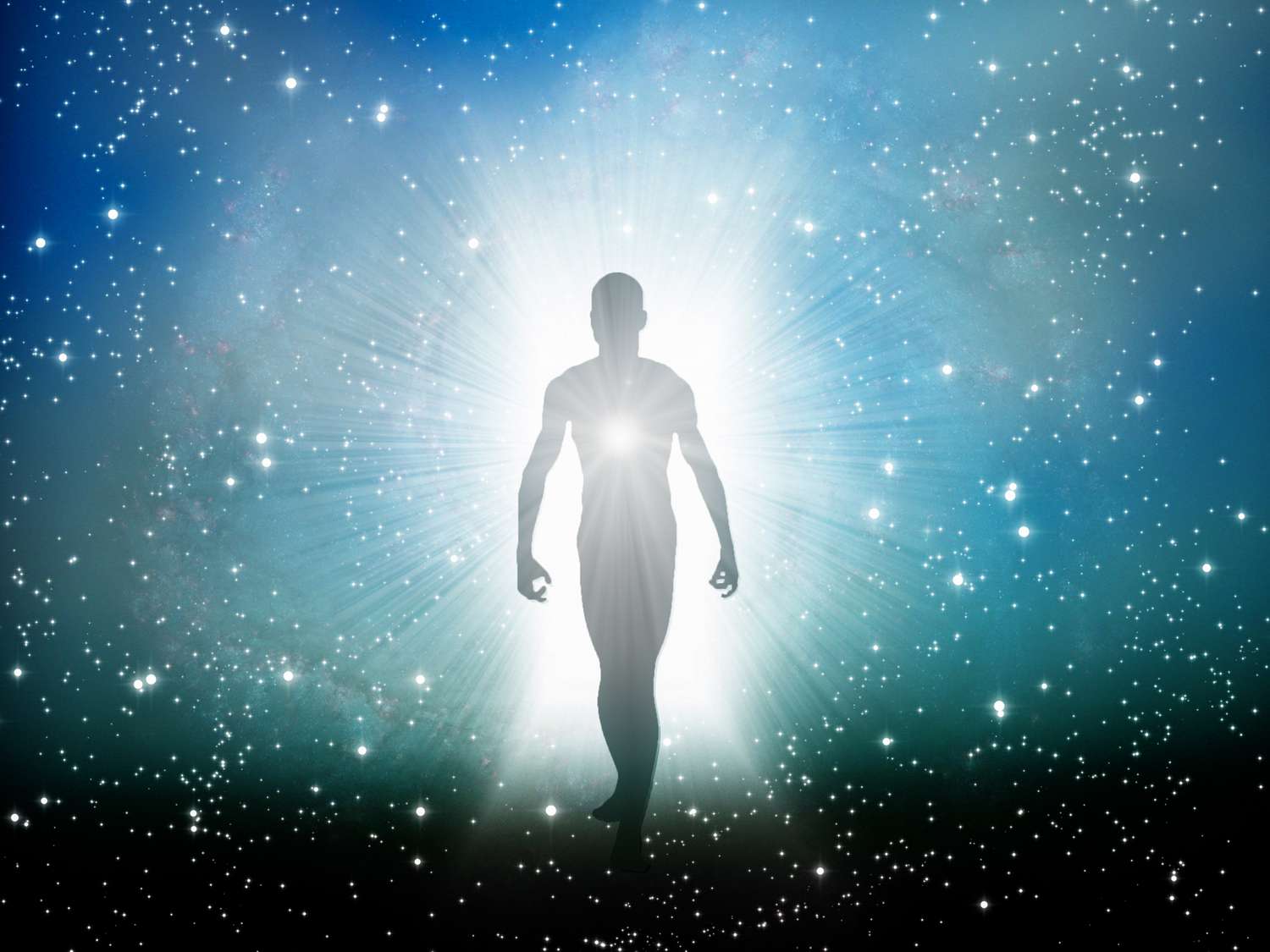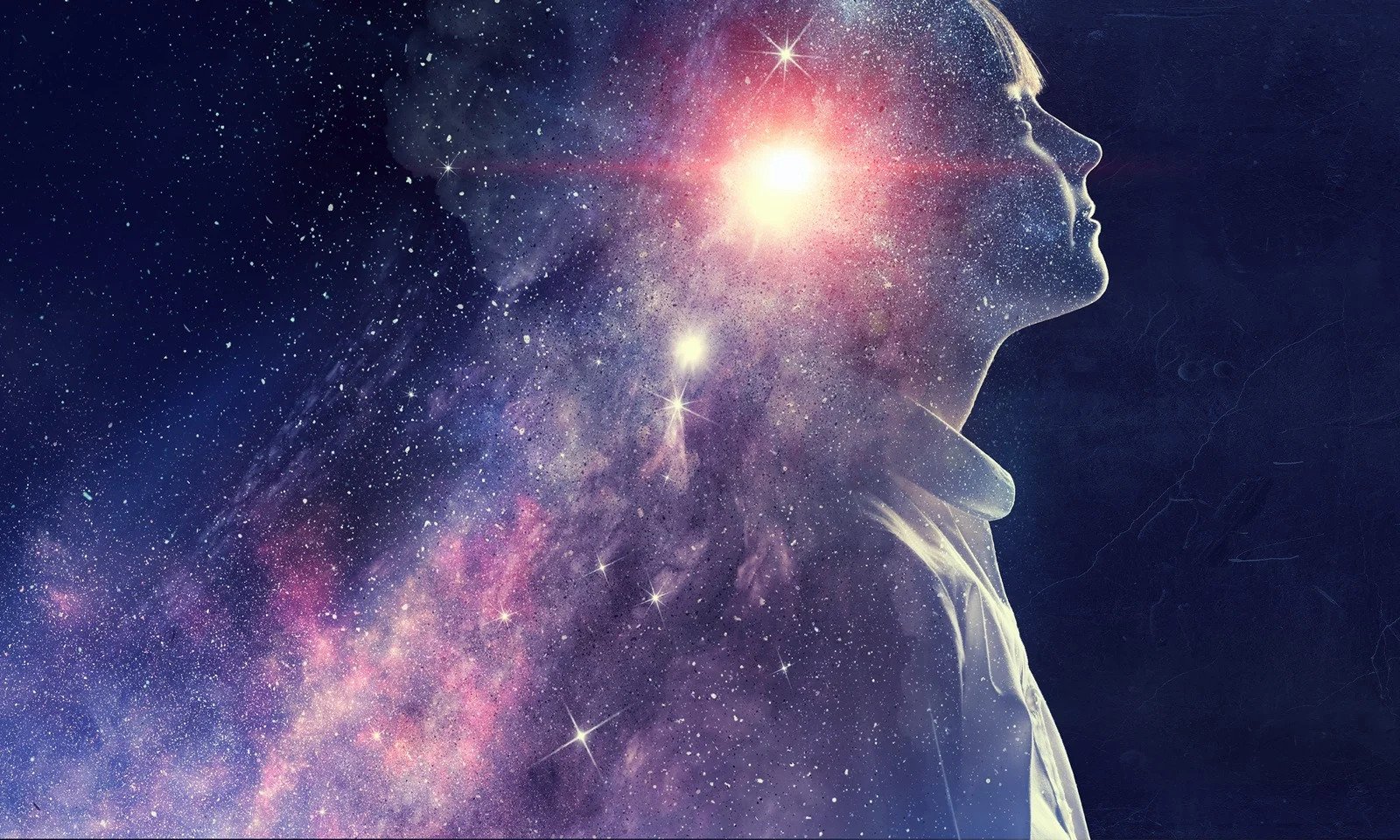Is Reincarnation A Privilege Or A Requirement?
People have been curious about reincarnation for a long time, wondering if it's a special privilege or something everyone has to go through. However, is reincarnation a privilege or a requirement? This question digs into the mysteries of life and what happens to our souls.
Author:Evelyn AdamsReviewer:Calvin PenwellDec 21, 202341.6K Shares555.5K Views

People have been curious about reincarnationfor a long time, wondering if it's a special privilege or something everyone has to go through. Is reincarnation a privilege or a requirement?This question digs into the mysteries of life and what happens to our souls.
What Is Reincarnation?
Reincarnation means the idea that your soul, or some part of it, is born again into new lives. This can happen in humans, animals, or plants. The goal is to break free from the cycle of being born, dying, and being reborn. Many Eastern religions, like Hinduism and Buddhism, believe in reincarnation, seeing it as a way to become pure and eventually find salvation.
The idea of reincarnation, however, seems strange in religions like Christianity, Judaism, and Islam, where adherents think there is only one life and an eternal afterlife. These religions see time as a straight line, and life is a single step that decides what happens in the afterlife. So, for them, reincarnation is like a long relay race instead of a quick sprint.
The Requirement Of Reincarnation
The idea that reincarnation might be a requirement is like saying our souls go through a series of lives to learn and grow. It's a bit like going to school, where each life is a lesson, and we keep coming back until we graduate spiritually. The belief is that our souls evolve and become wiser over time.
Imagine your soul as a traveler on a journey. Each life is a different destination, and in each place, you pick up new experiences and lessons. The concept suggests that we come back to Earth to work on ourselves, to become better versions of who we are. It's like we have homework to do in the form of challenges and experiences unique to each life.
The requirement part comes in because, according to this idea, coming back is necessary for our soul's progress. It's not just a one-time thing; it's a cycle. Each life adds something valuable to our soul's understanding and maturity. So, in a way, reincarnation is seen as a kind of cosmic curriculum designed for the development and refinement of our spiritual selves.
Reincarnation In Hinduism
Hinduism, as one of the oldest surviving religions, is incredibly diverse. Its followers worship a multitude of gods and cherish various traditions. Despite this diversity, a common thread that unites Hindus is the acceptance of samsara, a cycle of births and deaths connected by reincarnation.
Central to managing samsara is the concept of karma. In Hindu belief, individuals accrue karma throughout their lives. Positive deeds generate good karma, while negative actions result in negative karma. It's important to remember that people earn karma and carry it with them through subsequent lifetimes rather than having it assigned or governed by any deity.
While good karma in Hinduism can lead to a higher position in the caste system in the next life, the ultimate goal for any Hindu follower is moksha, or liberation from the cycle of samsara. Moksha is the final of the four main Hindu objectives, with the first three - kama, artha, and dharma - focused on earthly pursuits such as pleasure, power, well-being, and virtue.
Interestingly, achieving moksha requires a deliberate effort to detach from the desire for it. Salvation comes only when a person abandons all pursuits and desires, recognizing that the individual soul is identical to Brahman, the universal soul or god. By breaking free from the cycle of reincarnation, an individual escapes the pain and suffering of repeated earthly existence.
The belief in reincarnation is also prominent in two other major religions originating from India: Jainism and Sikhism. Jains believe that the soul accumulates karma as an actual physical substance, unlike the conceptual Hindu idea of karmic law. Until the soul is free from all karmic particles, it must bind with the body, leading to a series of rebirths.
Liberation from the cycle occurs only when the soul is entirely free from karma, allowing it to join other disembodied souls in a state of perfection. However, because Jains believe deliverance is currently unattainable, devoted followers focus on purification.
Sikhism teaches reincarnation in a similar way, with the law of karma influencing one's quality of life. To escape the cycle of birth and rebirth, Sikhs must attain complete knowledge and unite with God.
Reincarnation In Buddhism
When Buddhism emerged 2,500 years ago, it embraced the Hindu concept of reincarnation. While Buddhism has diverse practices across its two major branches and various regional variations, most Buddhists share the belief in samsara, the cycle of rebirth.
The law of karma governs Samsara, according to which good deeds result in positive karma and bad deeds produce negative karma. Buddhists hold that the soul's karma moves between bodies, becoming a "germ of consciousness" in the womb, with periods of the afterlife, known as "the between," occurring between death and rebirth.
Similar to Hindus, Buddhists perceive unenlightened samsara as a state of suffering caused by attachment to transient desires. Liberation from samsara and attainment of nirvana, or salvation, is achieved only when one reaches a state of complete passiveness and frees oneself from all desires.
Many Buddhists believe that following the Eightfold Path, also known as the middle way, is the way to break the cycle of reincarnation. An enlightened being embodies the principles of the Eightfold Path, including correct view, intention, speech, action, livelihood, effort, mindfulness, and concentration.
Siddhartha Gautama, the Buddha, introduced the Eightfold Path in his first sermon after attaining enlightenment. Born around 563 B.C. near modern-day Nepal, Siddhartha initially led a luxurious and privileged life. However, questioning his spiritual state, he abandoned a life of excess and extreme asceticism in favor of the middle way - a balanced existence. This choice ultimately led Siddhartha to enlightenment.
Reincarnation In The Ancient Western World
While belief in reincarnation is commonly associated with Eastern religions, it also found a place in the ancient Western world, particularly in mystery religions that later evolved into secular social clubs or fraternities. These Greco-Roman mystery religions held diverse beliefs and ceremonies surrounding reincarnation, influencing the philosophical thoughts of renowned figures like Plato.
One such mystery religion was Orphism, originating in the sixth or seventh century B.C. Followers of Orphism studied the supposed writings of the legendary musical figure Orpheus. They believed in an enduring soul capable of incarnating in human or mammalian forms. According to Orphics, the soul, considered divine, was confined by the body. By leading a righteous life and abstaining from meat, wine, and sex, a soul could reach Elysium, a paradise after death.
Conversely, an evil soul would face punishment in hell. However, neither afterlife was eternal, and after a period, the soul would be reborn into a new body. It was only after three virtuous Orphic lives that a soul could break free from the cycle of reincarnation.
The fascination with death and the afterlife in Orphism influenced the Pythagorean Brotherhood, another mystery society in southern Italy. Pythagoras, the philosopher and mathematician associated with the brotherhood, believed in the soul's ability to incarnate in human or animal bodies, leading to his advocacy of vegetarianism. The fraternity combined religious theories with studies in astronomy, music, and geometry, emphasizing the soul's origin among the stars.
Philosopher Plato, too, subscribed to the idea of repeated reincarnation. He proposed a cosmology involving seven planetary spheres and an eighth sphere of fixed stars surrounding the Earth. According to Plato, the divine lay beyond the eighth sphere, setting the universe in motion. Souls descended from the planets, joined with bodies on Earth, and then sought to free themselves and ascend back to the stars.
Reincarnation In The Christian World
The major Christian denominations firmly reject the concept of reincarnation. In Christian belief, when a person dies, their soul enters a state of sleep alongside their physical remains. This soul sleep persists until a future event known as the "last day" or the "final judgment." While the Bible does not explicitly support reincarnation, there are interpretations suggesting that Jesus himself taught such a concept.
However, early Christian history witnessed a schism regarding the understanding of Jesus. Questions arose about whether he was a man who attained divinity or if he was God incarnate. This theological debate emerged between the Church established by Paul in Rome and the remnants of the Jerusalem Church, which had sought refuge in Egypt after the Roman invasion of Israel in 70 AD.
The Roman faction rejected notions of pre-existence and reincarnation, asserting that Jesus was God in human form. In contrast, the Jerusalem faction maintained that Jesus was a man who achieved a unity of the human and divine - a state of atonement. This atonement, they believed, was the key to breaking the cycle of reincarnation and attaining eternal life.
Despite the theological differences, the Roman faction emerged victorious in the political arena, shaping the orthodox definition of resurrection as an event reserved for the end of time - a concept metaphorically likened to the "Night of the Living Dead."
Is Reincarnation A Privilege Or A Requirement?
Reincarnation, whether perceived as a privilege or a requirement, hinges on the philosophical and religious perspectives that individuals hold. For some, reincarnation is viewed as a necessary cycle embedded in the fabric of existence. From this standpoint, it is not merely a privilege but an inherent aspect of spiritual evolution.
The belief suggests that individuals undergo successive lives to learn, grow, and ultimately attain a higher state of being. In this context, reincarnation serves as a requirement for the soul's progression towards enlightenment or salvation.
Conversely, others regard reincarnation as a potential privilege - an opportunity granted to individuals based on their actions and spiritual merit. In this perspective, the chance to experience multiple lives is considered a reward for virtuous living and adherence to moral principles.
Reincarnation, in this view, becomes a privilege bestowed upon those who have accumulated positive karma or fulfilled certain spiritual criteria. The notion of reincarnation as a privilege aligns with the idea that not everyone may have the same opportunities for spiritual growth or redemption.
However, the interpretationof reincarnation as a privilege or a requirement is highly subjective and varies across different cultural and religious frameworks. Hinduism, for instance, often sees reincarnation as both a requirement and an opportunity for improvement.
On the other hand, some Western philosophies may lean towards viewing it more as an earned privilege. Ultimately, whether one sees reincarnation as a necessary step in the soul's journey or a reward for virtuous living depends on their individual beliefs and the cultural or religious context that shapes their worldview.
Challenges To The Concept
The idea of reincarnation, while intriguing, faces several challenges that prompt skepticism and critical examination. One significant challenge comes from those who question the empirical evidence supporting the concept. Unlike tangible phenomena that can be observed and measured, reincarnation relies heavily on anecdotal accounts and subjective experiences, making it difficult for skeptics to fully embrace the idea.
Ethical considerations also pose challenges to the concept of reincarnation. Some critics argue that the belief in reincarnation can lead to complacency or fatalism, as individuals may adopt a passive attitude towards their present life, thinking they can rectify mistakes or pursue growth in future lifetimes. This raises concerns about accountability and responsibility in the current life, as the consequences of actions may be perceived as deferred to a later existence.
Furthermore, alternative explanations for phenomena commonly associated with reincarnation challenge the traditional understanding of the concept. Psychological and neurological perspectives suggest that certain experiences, such as déjà vu or vivid memories of past lives, may be attributed to cognitive processes rather than the transmigration of the soul. These alternative interpretations complicate the acceptance of reincarnation as a valid explanation for these occurrences.
The cultural and religious diversity surrounding the concept of reincarnation also adds complexity. Different belief systems offer diverse explanations for the nature of existence and the afterlife, often conflicting with one another.
This diversity makes it challenging to establish a universally accepted framework for reincarnation, as interpretations vary widely and are deeply rooted in cultural and religious contexts. Overall, these challenges contribute to an ongoing debate surrounding the credibility and applicability of the concept of reincarnation.
Is Reincarnation A Privilege Or A Requirement? - FAQ
What Is The Principle Of Reincarnation?
The doctrine of reincarnation teaches that each human being has been born and died, and again been born and died, over and over again in a beginningless process that will never end unless they become enlightened.
Is Reincarnation A Belief System?
Reincarnation forms one of the foundations of religious mysticism. It is a basic tenet of both Hinduism and Buddhism, which teach that the soul of every person and plant is eternal and returns, after death, in another form (Drury, 1985).
Who Believes Reincarnation?
Reincarnation is a mainstream teaching in Hinduism, Sikhism, Buddhism and Jainism. But fewer than half of Indians in each of these groups say they believe in reincarnation. For example, 40% of India's Hindus believe in reincarnation.
Conclusion
As we wrap up our thoughts on reincarnation, we find ourselves thinking about the big questions of life. Is reincarnation a privilege or a requirement? Maybe it's a mix of both, influenced by our personal spiritual paths and the larger forces guiding the universe.
Whether it's a chance for personal growth or a necessary step for our souls, the idea of reincarnation encourages us to think beyond just one lifetime. In the vast landscape of spiritual dimensions, the mystery remains, reminding us that our quest for understanding is as endless as the cycles of rebirth.
Jump to
What Is Reincarnation?
The Requirement Of Reincarnation
Reincarnation In Hinduism
Reincarnation In Buddhism
Reincarnation In The Ancient Western World
Reincarnation In The Christian World
Is Reincarnation A Privilege Or A Requirement?
Challenges To The Concept
Is Reincarnation A Privilege Or A Requirement? - FAQ
Conclusion

Evelyn Adams
Author
Evelyn Adams is a dedicated writer at Kansas Press, with a passion for exploring the mystical and uncovering hidden meanings.
Evelyn brings a wealth of knowledge and expertise to her insightful articles. Her work reflects a commitment to providing accurate information, thoughtful analyses, and engaging narratives that empower readers to delve into the mysteries of the universe.
Through her contributions, Evelyn aims to inspire curiosity, spark imagination, and foster a deeper understanding of the supernatural world.

Calvin Penwell
Reviewer
Since diving into numerology in 1997, my path has been marked by extraordinary encounters and insights. A pivotal moment was uncovering a forgotten numerological manuscript in a tucked-away Italian library, which deepened my connection to the ancient wisdom of numbers. Another transformative experience was a meditation retreat in Nepal's tranquil mountains, where I honed my intuition and the art of interpreting numerical vibrations.
These adventures have not only enriched my numerological practice but also my ability to guide others towards understanding their destiny and life's purpose. My approach is deeply personal, rooted in a blend of historical knowledge and intuitive insight, aimed at helping individuals find their alignment with the universe's abundant energies. My mission is simple: to share the power of numerology in illuminating paths to abundance and fulfillment.
Latest Articles
Popular Articles

